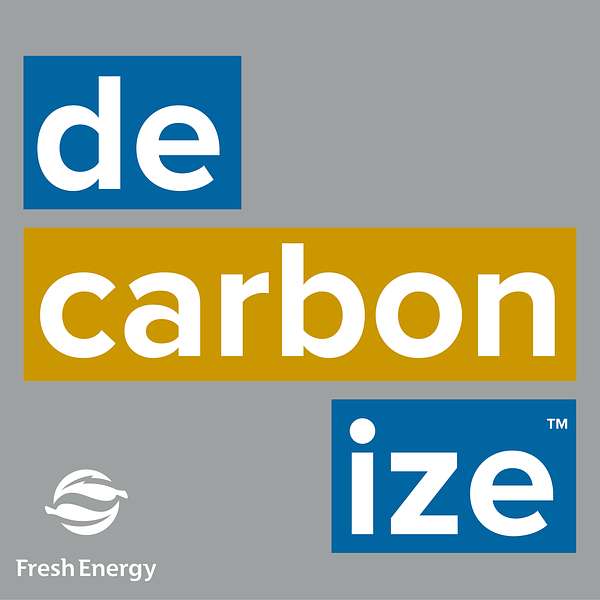
Decarbonize: The Clean Energy Podcast
Decarbonize: The Clean Energy Podcast
"How can all-electric affordable housing really work?" A conversation feat. Elizabeth Turner of Precipitate
Minnesota is working hard to create more affordable housing. But if we build structures that are not super-efficient, residents will be saddled with high energy bills—and we will miss an opportunity to improve our built environment, a top source of carbon emissions in the state. Now more than ever the topic of affordable housing has become even more critical.
In July 2020, Fresh Energy hosted conversations with Minnesota thought leaders and Fresh Energy staff about how super-efficient buildings can become the new normal in equitable affordable housing. This is the first in the four-part series featuring a discussion with Elizabeth Turner, Architect and Founder of Precipitate. It was recorded on July 9, 2020.
With the increased attention on affordable housing in this current crisis, we know that the conversation has only just begun and it’s crucial that energy efficiency be part of the equation. We must build new affordable housing that is so energy efficient it can be heated and cooled with small amounts of renewable electricity. It makes economic sense, it improves indoor air quality, and it also dramatically reduces carbon emissions.
We have the know-how to build super-efficient housing that is affordable over the long term. Why isn’t all new housing built that way, and how can we do better? Fresh Energy is bringing people together from diverse areas of the affordable housing arena to explore this issue.
Thank you to Stoel Rives LLP for sponsoring this event.
Meet the Speakers
Elizabeth Turner
Elizabeth Turner is an architect and founder of Precipitate, a firm that responds to the pressing social, economic, and ecological justice issues of today through deep listening and engagement, leading to holistic design at the intersection of architecture, research, policy, and education. As Passive House Consultant, Elizabeth pioneered pre-certification of the Hook & Ladder development—the first large multi-family project to PHIUS+2015 standards in Climate Zone 6A. This project is considered a “testing zone” for the industry and a model for super-efficient structures.
Margaret Cherne-Hendrick
As Fresh Energy's director of beneficial electrification, Margaret leads Fresh Energy’s strategic imperative to decarbonize fossil fuel-dependent sectors of Minnesota’s economy and advances policy aimed at enhancing carbon sequestration potential across the state. Margaret joined Fresh Energy’s staff in 2018. She previously worked as a senior policy associate at the Institute for Sustainable Energy at Boston University. Margaret’s multidisciplinary background in climate science and energy policy – including work with the Environmental Protection Agency, Conservation Law Foundation, Barr Foundation, and Home Energy Efficiency Team (HEET) – informs her approach to developing efficient, cost-effective, and inclusive decarbonization strategies. Margaret holds a PhD in Geography from Boston U
Fresh Energy’s mission is to shape and drive bold policy solutions to achieve equitable carbon-neutral economies. Together we are working toward a vision of a just, prosperous, and resilient future powered by a shared commitment to a carbon-neutral economy. Learn about Fresh Energy's work and our bold "Vision 2030: Fresh Energy's Strategic Framework" at our website fresh-energy.org.
Follow us on Social Media!
Instagram: https://www.instagram.com/freshenergytoday/
Bluesky: https://bsky.app/profile/freshenergy.bsky.social
Facebook: https://www.facebook.com/freshenergytoday
LinkedIn: https://www.linkedin.com/company/fresh-energy/